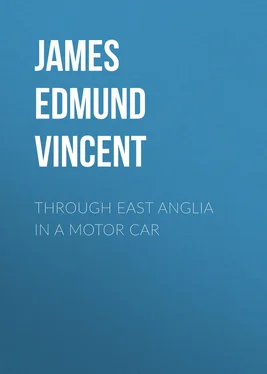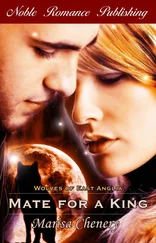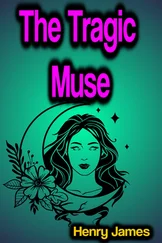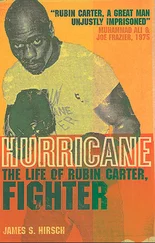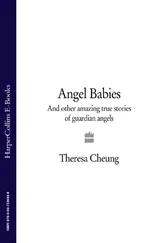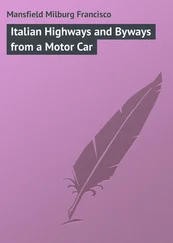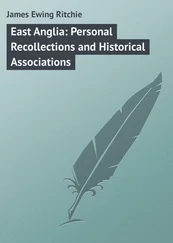James Vincent - Through East Anglia in a Motor Car
Здесь есть возможность читать онлайн «James Vincent - Through East Anglia in a Motor Car» — ознакомительный отрывок электронной книги совершенно бесплатно, а после прочтения отрывка купить полную версию. В некоторых случаях можно слушать аудио, скачать через торрент в формате fb2 и присутствует краткое содержание. Жанр: Путешествия и география, foreign_antique, foreign_prose, на английском языке. Описание произведения, (предисловие) а так же отзывы посетителей доступны на портале библиотеки ЛибКат.
- Название:Through East Anglia in a Motor Car
- Автор:
- Жанр:
- Год:неизвестен
- ISBN:нет данных
- Рейтинг книги:3 / 5. Голосов: 1
-
Избранное:Добавить в избранное
- Отзывы:
-
Ваша оценка:
- 60
- 1
- 2
- 3
- 4
- 5
Through East Anglia in a Motor Car: краткое содержание, описание и аннотация
Предлагаем к чтению аннотацию, описание, краткое содержание или предисловие (зависит от того, что написал сам автор книги «Through East Anglia in a Motor Car»). Если вы не нашли необходимую информацию о книге — напишите в комментариях, мы постараемся отыскать её.
Through East Anglia in a Motor Car — читать онлайн ознакомительный отрывок
Ниже представлен текст книги, разбитый по страницам. Система сохранения места последней прочитанной страницы, позволяет с удобством читать онлайн бесплатно книгу «Through East Anglia in a Motor Car», без необходимости каждый раз заново искать на чём Вы остановились. Поставьте закладку, и сможете в любой момент перейти на страницу, на которой закончили чтение.
Интервал:
Закладка:
From Acle to Norwich was ten miles more or less of up-and-down travelling, the hills not serious enough to try a good motor high, and it was an unfeigned relief to reach the shelter and food of the Royal Hotel. Here, practically, ends the account of the second day of this excursion, for the Royal Hotel is comfortable, not expensive as English hotels go, and new; but mere comfort is fortunately commonplace, its novelty is rather more of an outrage than usual in this case, and the novelty of the hotel's name is an offence not to be pardoned. Here, where the modern "Royal" stands, in the very centre of the city, stood the famous "Angel" from the fifteenth century at least to the middle of the nineteenth. Local antiquaries, many and eager, rejoice in tracing the history of this celebrated hostelry, finding frequent allusions to it in the records of the Master of the Revels, for here mountebanks performed, and theatrical performances were given, and strange monsters were shown. It had the glory of paying £115 tax for thirty windows in the eighteenth century—this makes one understand the blocked windows in old houses more sympathetically than a bare mention of window tax does—and it was the great Whig House in the days when Norfolk elections were, as Mr. Walter Rye tells us, half of the history of Norfolk, the other half being concerned with trade. It is true that Mr. Walter Rye, speaking of the election of 1675, says that Sir Nevill Cattyn's party "used the 'Royal,' (then the 'King's Head,') and the other side, using a stratagem—singularly enough repeated at the same house last election, two or three years ago—ordered a great dinner there on the pretence that they might 'friendly meet and dine' with the other party, and ultimately secured the whole house as their election quarters; Cattyn, who was brought into town by four thousand horsemen, having to put up with the 'White Swan' 'at the back side of the butchers' shambles'" ( A History of Norfolk , by Walter Rye. Elliot Stock, 1885). I prefer to pin my faith to Norfolk and Norwich Notes and Queries , not only because its elaborate article on the topic is evidently based on careful research, but also because its statements are not contradicted in subsequent issues, and these bear eloquent testimony to the fact that the local antiquaries of East Anglia have at least one trait in common with the antiquaries of the wider world—they contradict with freedom and dispute with endless pertinacity. Here there is no contradiction (and Mr. Rye's accuracy is by no means equal to his industry or to his love of antiquity), so it may be taken as reasonably certain that the "Royal" is on the site of the "Angel," and that the "Angel" first appeared by that name in 1578, when it was leased to one Peterson; but the property has been traced back to Mistress Katharine Dysse in the rolls of the Mayoralty Court of Norwich, and she lived early in the fifteenth century. Here, in October, 1677, Joseph Argent had "fourteen days allowed to him to make show of such tricks as are mentioned in his patent at the 'Angel.'" In 1683 "Robert Austine at ye Angel hath leave given him for a week from ys Daie to make show of the storie of Edward the 4th and Iane Shore, and noe longer." In several later years Peter Dolman clearly made a great success with Punchinello or Puntionella—both forms are used. There are a score of similar entries, also of displays at the "Angel," of freaks and monstrosities, waxworks and the like. Hither fled Mr. Thomas Coke, of Holkham, father of the agriculture of Norfolk, during a Corn Law riot of 1815, escaping through the back of the house with the then Earl of Albemarle; in the "Angel" in 1794 the Duke of York stayed when on his way to Yarmouth to meet the exiled family of the Prince of Orange, and here the Duke of Wellington changed horses on his way to Gunton in 1820, receiving a hearty welcome from the citizens. From the "Angel" the Whigs sallied forth during the election of 1832, and enjoyed a glorious fight in quite the old style with the Tories in the market-place. An inn-name of such antiquity and so many associations should not have been changed. Apparently, however, the house has not changed its political colour, for it is a curious coincidence that, on the evening of 24 January, Lord Kimberley was a guest at the "Royal," and next day his son, Lord Wodehouse, won the Mid-Norfolk election. Now the Wodehouses have been Whigs ever since Whigs were, and it need not be doubted that Sir Philip Wodehouse, M.P. for Castle Rising, who died in 1623, was of much the same political temper as those of the name who came after him.
Next morning I walked about Norwich, and I have done the like many times, but, short of writing a book on the subject, which is certainly not necessary, it is by no means easy to decide how to treat it. Norfolk has more parishes and churches in proportion to its area than any other county (730 to 2024 square miles, whereas Yorkshire to 5836 square miles has but 613, according to Mr. Rye), and of these, besides a remarkably striking cathedral, there are no less than thirty-five in Norwich alone. Norwich has a castle, its history and nature far from free of doubt; some relics of walls built by the citizens for their own safety in the time of Edward I, when they were empowered to levy a "murage" tax; an ancient Guildhall of smooth, black flint (which interested me, although it is said to have "no regularity or beauty of architecture to recommend it"); St. Andrew's Hall; the nave of an ancient Dominican church; a school partially domiciled in what is left of a Dominican convent; a fine museum containing some rare treasures of antiquity; the curious part known as Tombland; and great store of ancient houses, each one of them possessed of a history. Also, in the "Maid's Head," to be described later, it has the most alluring old inn known to me anywhere. True it is that a mayor of Norwich, conducting a royal personage on a tour of inspection, is reported to have said "this was an ancient city, Your Royal Highness, before several of the old houses were pulled down," but, while there can never be too many old houses left to be an endless delight to the antiquary, there are far too many to be noticed in a work of this kind. One learns without surprise, but not without satisfaction, that a society of persons interested in antiquities meets periodically for "Walks in Norwich," and it is pleasant to follow their wanderings. Now they are studying the stately cathedral, with its three magnificent gateways, and its beautiful fourteenth-century spire, and listening to its story from the lips, it may be, of Dr. Jessopp. (All I need say at this moment is that I have never known the grand simplicity of the prevailing Norman style to strike the imagination so quickly and so completely as when I first entered it at a time, as it happened, when the exceptionally perfect organ was being played in the empty church.) At another time they are investigating the Butter Hills, and learning that they take their name from John le Boteler, who gave them to Carrow Abbey; at another finding traces in a malt-house of the house of that stout Sir Robert de Salle who opposed Wat Tyler's rebellion in these parts, and was celebrated by Froissart. Here the temptation to quote a little is overpowering. The insurgents, it should be said, were led by Sir Roger Bacon and Geoffrey Lister, a dyer.
"The reason that they stopped near Norwich was that the Governor of the town was a knight called Sir Robert Salle: he was not a gentleman by birth, but having acquired great renown for his ability and courage King Edward had created him a knight: he was the handsomest and strongest man in England. Lister and his companions took it into their heads they would make this knight their commander and carry him with them in order to be the more feared. They sent orders to him to come out into the fields to speak with them, or they would attack and burn the city. The knight, considering that it was much better for him to go to them than that they should commit such outrages, mounted his horse and went out of the town alone to hear what they had to say. When they perceived him coming they showed him every mark of respect, and courteously entreated him to dismount and talk with them. He did dismount, and committed a great folly, for when he had so done, having surrounded him, they conversed at first in a friendly way, saying, 'Robert, you are a knight, and a man of great weight in this country, renowned for your valour; yet notwithstanding all this we know who you are; you are not a gentleman, but the son of a poor mason, just such as ourselves. Do you come with us as our commander, and we will make so great a lord of you that one-quarter of England shall be under your command.' The knight, on hearing them thus speak, was exceedingly angry; he would never have consented to such a proposal; and, eyeing them with inflamed looks, answered, 'Begone, wicked scoundrels and false traitors as you are; would you have me desert my natural lord for such blackguards as you are? I had rather you were all hanged, for that must be your end.' On saying this he attempted to mount his horse, but, his foot slipping from the stirrup, his horse took fright. They then shouted out and cried, 'Put him to death.' When he heard this he let his horse go, and drawing a handsome Bordeaux sword, he began to skirmish, and soon cleared the crowd from about him, that it was a pleasure to see. Some attempted to close with him; but with each stroke he gave he cut off heads, arms, feet or legs. There were none so bold but they were afraid, and Sir Robert performed that day marvellous feats of arms. These wretches were upwards of forty thousand; they shot and flung at him such things that, had he been clothed in steel instead of being unarmed, he must have been overpowered; however, he killed twelve of them, besides many whom he wounded. At last he was overthrown, when they cut off his legs and arms, and rent his body in piecemeal. Thus ended Sir Robert Salle, which was a great pity, and when the knights and squires in England heard of it they were much enraged."
Читать дальшеИнтервал:
Закладка:
Похожие книги на «Through East Anglia in a Motor Car»
Представляем Вашему вниманию похожие книги на «Through East Anglia in a Motor Car» списком для выбора. Мы отобрали схожую по названию и смыслу литературу в надежде предоставить читателям больше вариантов отыскать новые, интересные, ещё непрочитанные произведения.
Обсуждение, отзывы о книге «Through East Anglia in a Motor Car» и просто собственные мнения читателей. Оставьте ваши комментарии, напишите, что Вы думаете о произведении, его смысле или главных героях. Укажите что конкретно понравилось, а что нет, и почему Вы так считаете.
